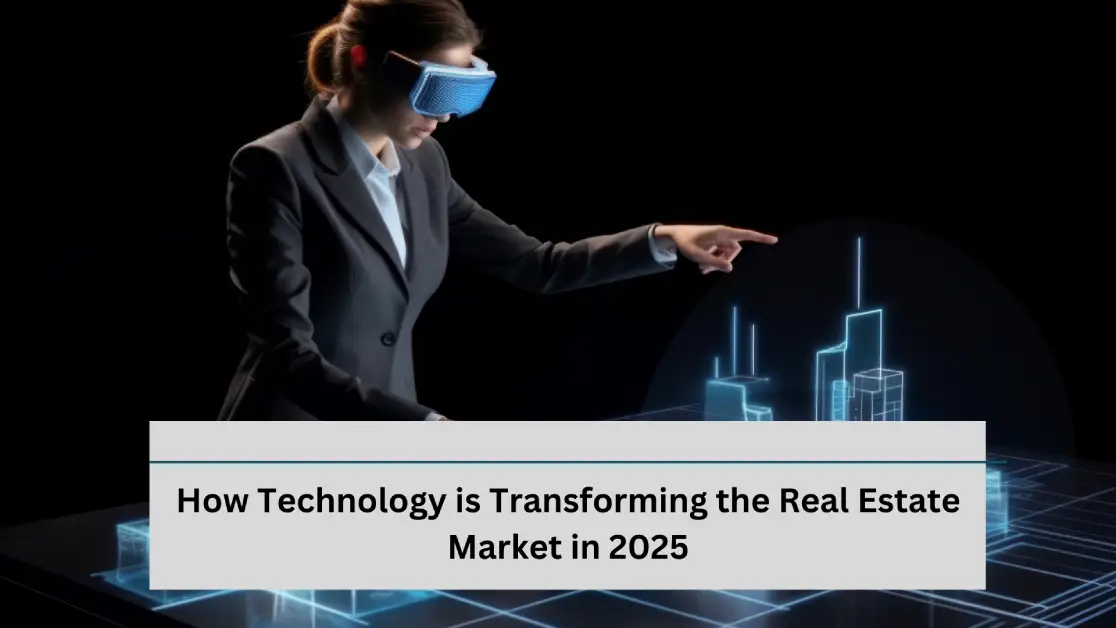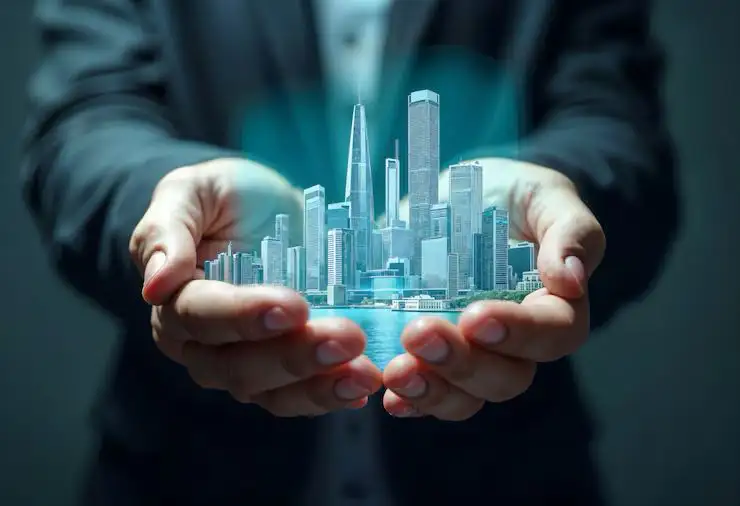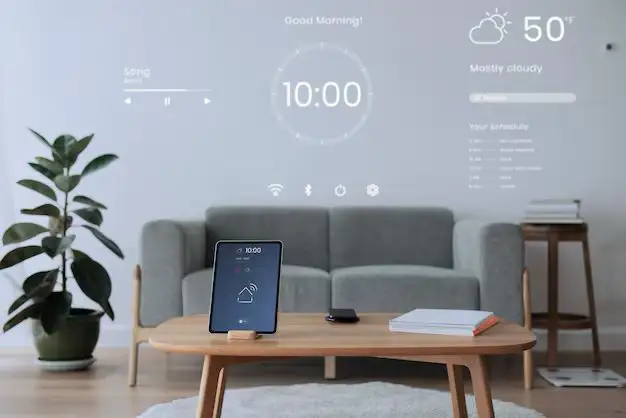

The real estate industry in India is undergoing a major transformation, and in 2025, the driving force will be clearly technology. From how properties are discovered and priced to how deals are closed, digital tools are now central to how real estate functions. This shift isn’t about luxury or convenience anymore — it’s about meeting buyer expectations and staying competitive in an increasingly digital-first market.
In cities like Pune, this shift is particularly visible. Developers, investors, and buyers are adapting to a faster, smarter ecosystem. Whether it’s AI recommending properties, virtual tours saving time, or digital contracts accelerating transactions, these changes are defining the new normal.
AI and Automation Are Taking Over Routine Tasks

AI is now a significant factor in the real estate industry to improve the operations of the business. Today, platforms independently choose properties based on customer behaviour, location, and budget. This helps in avoiding time wastage going through the numerous listings that are not of interest to the buyer.
The AI in the real estate market is projected to have a CAGR of 35% and is expected to reach $1,803.45 billion by 2030. It is also transforming the back end of the industry, improving the speed of loan processing, identifying key leads, and assisting in layout design based on buyers’ behaviour and patterns.
Virtual Tours and AR Help Buyers Make Faster Decisions

Virtual and 3D property tours are not a luxury anymore but a necessity in the current world. These tools allow the buyers to view homes and make several decisions without physically being at the homes. There are statistics that show that homes with 3D walkthroughs can be sold 31% faster.
Augmented Reality is also useful in the sense that it allows the buyers to see changes — furniture, flooring, wall colours on their screens. This brings confidence to remote buyers, especially in the high-demand urban markets, hence the need to adopt this strategy.
Blockchain Simplifies Transactions
Blockchain technology is now addressing some of the most critical issues in the real estate industry, namely paperwork, fraud, and time. Smart contracts are offering secure and unalterable agreements and can reduce the cost of a transaction by up to 50% and time by 30%.
Smart Homes and IoT Are Becoming Expected Features

Smart home technology will no longer be a luxury by the year 2025. Intelligent lighting, intelligent personal assistants, energy management systems, and compatibility with the Internet of Things are no longer a luxury but a standard, especially with the younger generation.
According to recent statistics, consumers are planning to spend over $170 billion on smart home devices. Besides, these are real money savers and can increase the value of the property by up to 5%.
Digital Twins Support Better Planning and Maintenance
The building information models, which are the digital replicas of the buildings, allow developers and investors to assess the lighting, energy use, and maintenance before the construction phase. At the present time, the market of digital twins is growing at a rate of 38% per year globally, and according to Deloitte, maintenance costs can be reduced by up to 30%.
They also help the buyers to visualise the finished projects in their entirety, hence making the buying decision easier and more informed.
Sustainability Is Driving Buyer Decisions
The construction industry contributes to 37% of global carbon emissions, and the buyers and the authorities are demanding change. In India, the Energy Conservation Building Code (ECBC) and incentives under PMAY are helping developers to go green.
The four areas of interest to consumers in homes are solar water heating, LED lighting, and water recycling. IGBC and GRIHA are gradually becoming the hallmark of green investments.
The New Generation of Consumers: Millennials and Gen Z
The current generation of buyers is a digital one, meaning that they are very much in touch with the latest technology. They want virtual property tours, no paperwork, smart homes, and energy-efficient homes. They also rely on word of mouth — people believe in what others say and recommendations from social media more than they believe in advertisements.
This is why developers and brokers are keen on enhancing the follow-up and communication with customers through different platforms like WhatsApp and email.
Our Take: What This Means for Buyers and Developers
When analysing the current situation of the real estate market in 2025, it can be stated that technology is no longer a luxury but a necessity. Whether it is the use of AI in decision-making or the use of blockchain in paperwork, the goal is to make real estate transactions faster, more efficient, and more transparent.
For the buyers, especially the millennials and Gen Z, this means more control in their hands. From virtual tours and instant chatbot support to smart home automation, the buying journey is now personal, frictionless, and mostly digital.
It is not easy for developers to be prepared to move, not in a strategic sense, but to move in a way that is most advantageous for the market. It should be designed for long-term value creation, and the design should be flexible enough to incorporate the digital systems as they are integrated.
In that regard, the current market has developers like Vasupujya Construction constructing good-quality, well-designed properties now with the capacity to integrate smart features in the future. This is as much a reflection of the buyer’s environment as it is of the need for proper planning in construction.
In conclusion, the winners in 2025 and beyond will be those who have good fundamentals and smart adoption — the notion that real estate today is not just the space but the experience, productivity, and readiness of the space.
Vasupujya Construction: Building for Today, Ready for Tomorrow
In the current world, technology is playing a significant role in the real estate industry, and this has made firms adopt different strategies in the way they deal with it. Some begin with a highly technical perspective, while others focus on the fundamental aspects of the layout, functional facilities, and location planning, and then add future needs. Vasupujya Construction can be said to be falling under this category.
Vasupujya is a name that has been associated with the development map of Pune and has delivered projects that are functional, well-connected, and durable. Some of the projects that they are currently involved in are as follows, based on the information that is available in the public domain:
| Project Name | Type | Key Features |
| Neco Park Central | Residential (Kharadi) | – 2, 3 & 4 BHK apartments- Clubhouse, meditation area, sports facilities- Well-connected to Kharadi IT Park |
| Neco Officers Ville | Residential Villas | – Spacious 4.5 BHK villas- Green surroundings- Located near NIBM Road |
| Neco Alpha | Commercial Offices | – Grade ‘A’ office space- CCTV, fire systems, solar PV- Located in Pimple Nilakh |
While these projects do not necessarily advertise technologies such as AI or IoT, they are created and developed with features that are in sync with the new buyer. From the design perspective, sustainability, and structure, all the projects of Vasupujya are safe and sustainable in the competitive market of Pune.
This is a good position for developers like Vasupujya to be in as the industry becomes increasingly digitised — they can provide what is needed now and what might be needed in the future.
Final Word: Real Estate in 2025 Is Digital, Efficient, and Evolving
The trends that are going to shape the real estate sector in the current year are not futuristic; they are already in the making. AI, blockchain, smart homes, and personalised marketing are transforming the buying and selling of properties as well as their management. Today’s buyers are looking for speed, transparency, and assurance, and technology offers all three of these.
Whether one is an investor, a homebuyer, or a developer, the message is clear: keeping track of this change is not optional — it is mandatory. And those who will adapt to the right tools and strategies will define what success in real estate means in the future.



